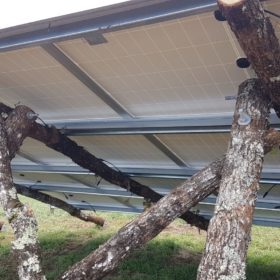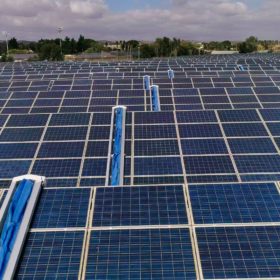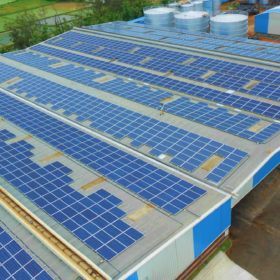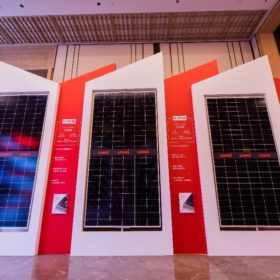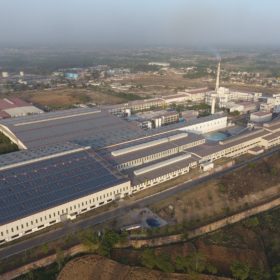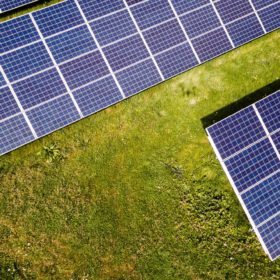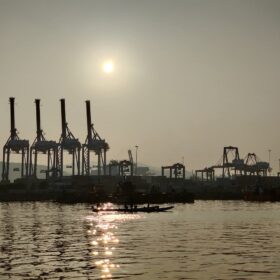US-based EverGreen Power to assess feasibility of 300MW wind-solar-storage project in Gujarat
The U.S. Trade and Development Agency (USTDA) is funding the 300MW wind-solar-storage project as part of its mission to promote sustainable infrastructure projects in partner countries like India.
Solar park built on rough wooden structures comes online in France
French company Céléwatt energized its 250 kW ground-mounted array, built with mounting structures made of raw oak wood.
ReNew Power to employ Israeli bots for solar panel cleaning
Israeli firm Airtouch Solar has landed a $7.6 million deal to deploy its water-free cleaning robots for the Indian developer’s three solar farms in Rajasthan.
Fourth Partner Energy secures INR 250 crore from UK investor CDC Group
The Hyderabad-based developer shall use the capital to expand its solar portfolio as it targets 3 GW of PV capacity across all its verticals by 2025. The investment, in the form of non-convertible debentures, marks CDC’s foray into India’s commercial and industrial solar segment.
EPC partners sought for rooftop solar projects across India
Developers have until May 17 to bid for the installation, commissioning, and ten-year operation and maintenance of rooftop solar projects across India.
Longi unveils two PV modules for distributed generation
The two new products will be part of the Hi-MO4m panel series for rooftop applications. Their efficiency ranges from 19.2% to 21.2%.
NTPC tenders 600 MW of wind-solar hybrid projects across India
EPC service providers have until May 31 to bid for setting up the ISTS-connected solar capacity on land identified and arranged by them anywhere in India. PV cells and modules of any origin are allowed for the projects.
REC launches 405 W black solar module with gapless design
The new heterojunction panel series features an efficiency of up to 21.9 % and an operating temperature coefficient of -0.26% per degree Celsius.
Premji-backed Indian firm to make solar glass
Float glass manufacturer Gold Plus Glass Industry confirmed to pv magazine its plans to establish a solar glass factory with a capacity of 300 tonnes per day. The plant, located in south India, will be operational by September 2023.
Maharashtra tenders 1.3 GW solar for agricultural loads
Developers have until May 17 to bid for setting up the grid-connected, ground-mount solar capacity that shall come up across 29 districts in the State. The ceiling tariff is fixed at INR 3.05/kWh.

